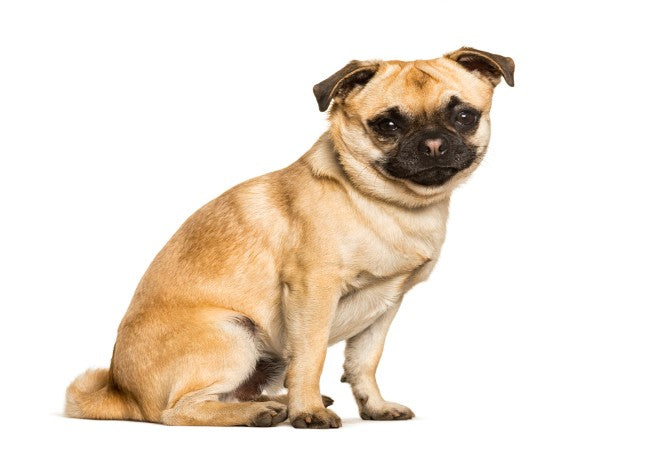Chug 2025 Guide: Care, Temperament & Training 🐶

In this article
Chug 2025 Guide: Care, Temperament & Training 🐶
By Dr. Duncan Houston BVSc
The Chug is a spunky, lovable hybrid that blends the comic charm of the Pug with the sass and loyalty of the Chihuahua. Though small in size, this mix is bursting with personality, and they’re ideal for apartment dwellers or first-time pet parents who appreciate a dog with a bit of attitude. In this veterinarian-authored guide, we’ll walk you through everything you need to know about Chugs—from grooming and behavior to health risks and training tools. 🐾
📜 Origins of the Chug
Chugs are a relatively recent designer breed, created by crossing the Chihuahua and the Pug to combine their affectionate nature and compact size. This mix has grown in popularity over the last two decades due to its portability and clownish personality. 🧳🐕
🧠 Temperament & Personality
Chugs often inherit the best (and sometimes the quirkiest) traits of both breeds:
- Affectionate & Loyal: Chugs adore their humans and thrive on companionship
- Playful: Loves attention, games, and lap time equally
- Can Be Vocal: A trait from the Chihuahua side—early training helps
- Clownish & Expressive: The Pug side brings silly antics and lovable charm
Tip: If your Chug tends to bark excessively,
🏡 Lifestyle & Environment Fit
Chugs make great pets for:
- Singles, couples, or families with older children
- Apartment living (with moderate exercise)
- Owners who work from home or can spend a lot of time with them
Due to their social nature, Chugs dislike being left alone for long periods. 🏠
✂️ Coat Types & Grooming
Chug coats vary, depending on which parent they take after:
- Short coat: Requires weekly brushing
- Longer or double coat: Brush 2–3 times a week to control shedding
- Wrinkle care: If they inherit Pug-like wrinkles, clean regularly to avoid infections
- Bathing: Monthly with a gentle dog shampoo
🐾 Exercise Needs
While small, Chugs are moderately active and love short bursts of play:
- Two 15–20 minute walks per day
- Indoor fetch, puzzle toys, or treat-dispensing games
- Supervised play with other small dogs
Overexertion in hot weather can be risky—especially for brachycephalic (short-nosed) Chugs. ❄️
🍗 Nutrition & Feeding Guidelines
Chugs are prone to weight gain and may have sensitive digestion. Feed them:
- Small-breed-specific kibble rich in lean protein and fiber
- Omega-3 fatty acids for skin and coat support
- Prebiotics and probiotics to support gut health
Divide meals into two servings per day. For personalized nutrition help, visit Ask A Vet for expert dietary plans. 🐾🍽️
🩺 Health Concerns in Chugs
Chugs may inherit health issues from either parent breed:
- Brachycephalic Airway Syndrome: Monitor for breathing difficulties, snoring, or overheating
- Dental Problems: Small mouths = crowded teeth. Brush daily
- Obesity: Watch treats and portion control closely
- Patellar Luxation: A common knee issue in small breeds
Regular wellness exams are crucial. Use Ask A Vet to discuss signs early. 🩺
🎓 Training & Socialization
Chugs are bright but can be stubborn. Focus on:
- Early socialization with people and other dogs
- Consistent, positive reinforcement methods
- Short, fun sessions with praise or treats
- Patience—especially with housebreaking
🧘♂️ Separation Anxiety & Behavioral Quirks
Chugs can develop separation anxiety if left alone too often. Prevent it by:
- Crate training or providing a safe, cozy space
- Interactive puzzle feeders and toys for enrichment
- Desensitization training and brief departures
If problems persist, consult a vet behaviorist through Ask A Vet. 🧠🐶
🏁 Final Thoughts: Is a Chug Right for You?
If you’re looking for a small dog with a big heart, a playful streak, and an unshakable devotion to their humans, the Chug may be your match. With the right care, socialization, and a bit of patience, these hybrids become loving, loyal family members. ❤️
Want a customized care plan or have questions about your Chug’s health? Connect with a vet now via Ask A Vet!






